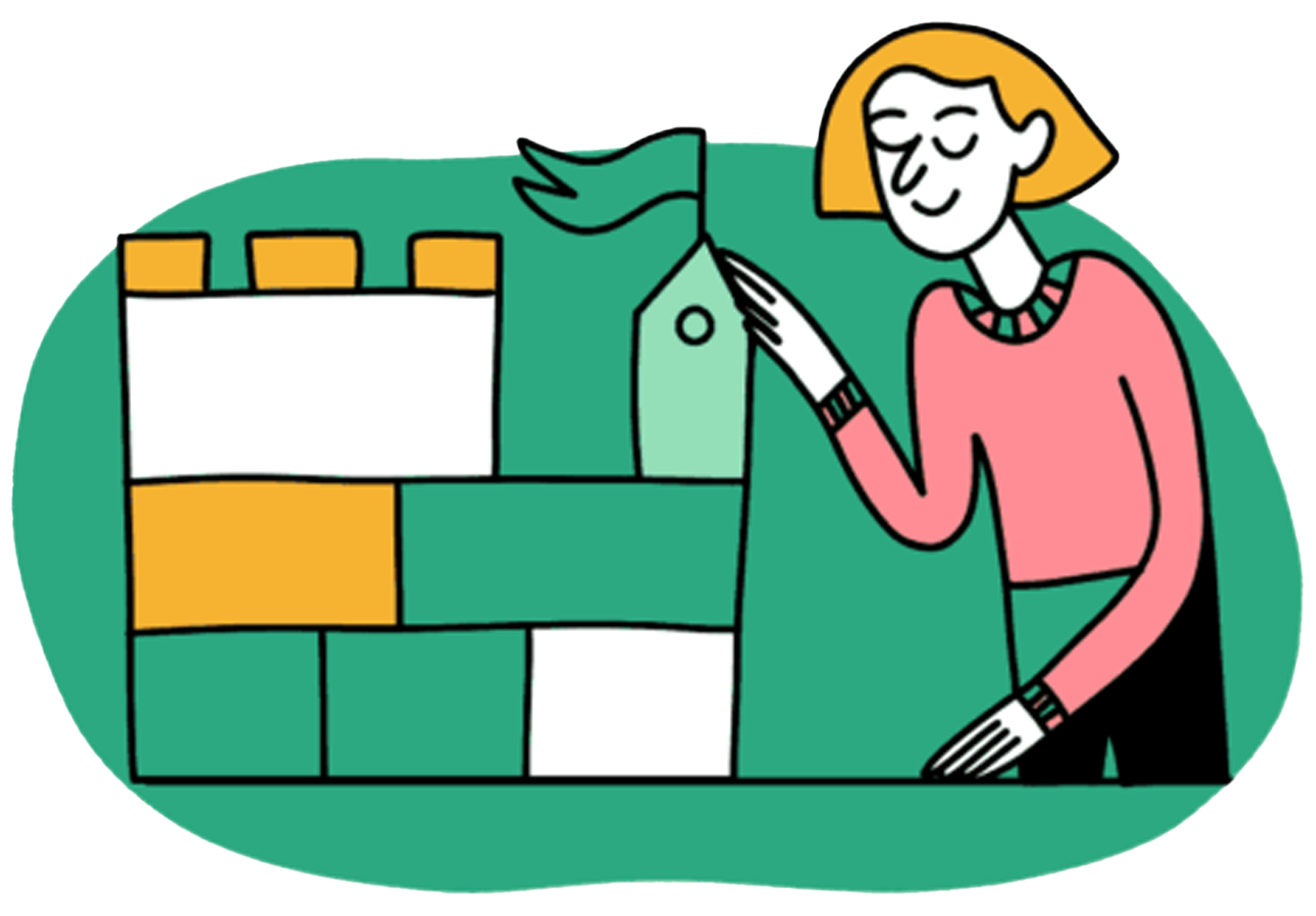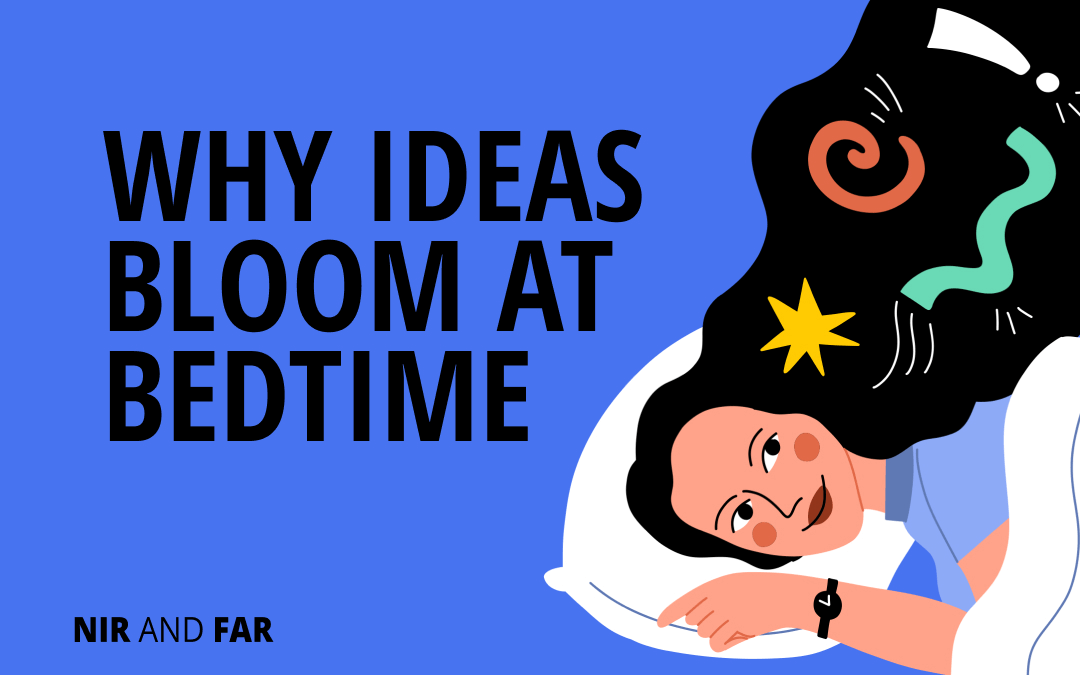More times than I can count, I’ve slid under the bedsheets, turned off the light, and shut my eyes…only to have a great idea pop into my head. I’ll toss and turn for a while, hoping I’ll forget the thought. But if it’s a good one, I’ll turn on the light and, eyes bleary, scribble it down.
When do you feel most creative? I’m surely not the only one with a bedtime burst of creativity. In a 2019 UK survey, more than 40 percent of people said being in bed spurs creativity, admitting they have their best ideas before sleep, in the middle of the night, and just after waking up.
As great as it is to have good ideas, the lights-on, lights-off approach to bedtime and our brain activity is tedious. To have great ideas during the day, we must make time for productive zoning out.
Why Creativity Comes at Bedtime
Scientists believe we’re pinged with great thoughts in bed because our brain is in a relaxed state conducive to neuroplasticity, “the brain’s ability to modify, change, and adapt both structure and function throughout life and in response to experience,” according to the journal Frontiers.
Neuroplasticity supports a cognitive process called pattern recognition: People learn and make decisions by detecting patterns and making connections within the information they have.
If every moment of your day is taken up with busywork for your brain—responding to emails, doing focused work, scrolling on your phone, socializing—then naturally, the only time your brain is free to do creative work is when you shut off the lights and your head hits the pillow. (Darkness and dim illumination also promote creativity!)
Another term for your brain being this relaxed? Boredom.
Boredom is one key to uncovering new ideas. Studies find that as the mind wanders, the brain produces more creative thoughts.
For better or worse, people don’t experience much boredom. Occupying ourselves with smartphones has replaced staring off into the distance and daydreaming. If we’re waiting for a friend, we take out our phones and scroll. If we have a few minutes before a meeting starts, we scroll.
That’s why many of us also have great ideas while showering, driving, or falling asleep, when we’re not on our devices. Those activities offer us rare alone time to operate on autopilot and just think without distraction.
People equate boredom with low productivity, but in fact, making time for boredom may help your brain be more creative and effective.
Schedule Boredom
It’s come to this: We have to schedule a time to be bored to reap its benefits.
You can use timeboxing, the most effective time management technique, to schedule even just a 15-minute period for zoning out every day or a few times a week.
Once you’ve timeboxed boredom in your schedule, stick to it. Don’t let another “more urgent” task supersede it. Or, use our handy habit tracker to make sure you don’t skip your boredom sessions.
And you don’t have to just sit on the couch and stare at a wall—although you could! (Re-creating bedtime by lying down with your eyes closed for a few minutes isn’t a bad idea.)
Another way to make time for boredom is to use multichannel multitasking. This technique enables you to do two things at once as long as the tasks involve different sensory inputs: For example, if you drive regularly, make a point of not listening to the radio; instead, let your mind wander. Or you could schedule mind wandering while running or walking.
Being bored is not a waste of time. It’s something your brain needs to learn, grow, and recharge. So do yourself a favor: Give yourself a few minutes a day to let your mind zone out. You and your brain deserve it.
Free Schedule Maker Template
Take back control of your time and design your ideal day.
Your email address is safe. I don't do the spam thing. Unsubscribe anytime. Privacy Policy.

Related Articles
- Schedule Maker: a Google Sheet to Plan Your Week
- Habit Tracker Template in Google Sheets
- The Ultimate Core Values List: Your Guide to Personal Growth
- Timeboxing: Why It Works and How to Get Started in 2025
- An Illustrated Guide to the 4 Types of Liars
- Hyperbolic Discounting: Why You Make Terrible Life Choices
- Happiness Hack: This One Ritual Made Me Much Happier

